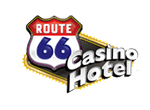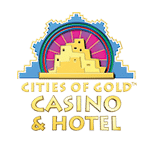Problem Gambling: Education, Prevention, and Treatment
The Responsible Gaming Association of New Mexico (RGANM) is a collaboration of many of the state’s Native American owned casinos, who work together to promote awareness of problem gambling and the available resources that RGANM provides. These include educational materials about problem gambling, and access to free treatment and counseling services.
Confidential help is available 24/7 by calling 888-696-2440 or find help here.
Gambling is a form of entertainment. If it becomes more than that, we’re here to help.
Most Americans are social gamblers who can enjoy the fun of gambling without harmful effects. The tribal casinos that make up the Responsible Gaming Association of New Mexico (RGANM) promote “knowing when to stop”, to keep gambling an entertainment option. RGANMworks toeducate and prevent excessive gambling, as well as offer treatment ifproblem gambling develops.
“Problem gambling” refers to too much time or money spent on gambling. While some problem gamblers get past this problem on their own, some go on to develop an addiction – “compulsive gambling.”
Compulsive gambling is not just a “bad habit.” It is an emotional illness recognized by the American Psychiatric Association. Just as some people can become addicted to alcohol or drugs, compulsive gamblers become obsessed with an uncontrollable urge to gamble.
RGANM helps problem gamblers and their families by providing a 24/7 helpline that offers information and crisis support, referrals to Gamblers Anonymous meetings, and treatment providers.
The Addiction of Compulsive Gambling
Signs and symptoms of compulsive gambling are:
- Gambling to calm nerves, forget worries, or reduce depression
- Talking or thinking aboutgambling and not doing other activities
- Lying about gambling habits
- Gambling alone or gambling more often
- Getting into arguments about gambling
- Going without basic needs in order to gamble
- Gambling more and more money to get the desired “high”
- Health problems like lethargy, headaches, anxiety, and depression
- Having financial problems caused by gambling
Underage Gambling
RGANM member casinos offer entertainment and dining options that youth are welcome to attend with their parents or guardians. Throughout NM casinos, minors are prohibited from gambling, yet some still try to do so. Today’s youth have grown up with online games that resemble gambling, which may put them at more risk.
Legal consequences for underage gambling can include misdemeanor charges and fines. Other consequences may include declining academic success, lack of interest in social and extra-curricular activities, anxiety and depression, and mounting debt. Gambling activity can also be associated with other high-risk activities like drug and alcohol use.
Those who’ve recently entered adulthood and can legally gamble should be aware of early signs which may indicate that gambling is becoming a problem. These include feeling like you need to “chase” a loss by continuing to gamble, or to increase a wager; missing classes or work to gamble; mood changes, depression or anxiety; gambling to escape your problems; lying about gambling; or borrowing or stealing money to finance gambling.
Many adults who seek help for problem gambling began their gambling habit as minors, sometimes with card games played as a family. It is the responsibility of adults, local law enforcement, and gambling establishments to educate youth about gambling.
Keeping Children Safe
Some of the RGANM member casinos providefamily entertainment options such asbowling, restaurants, concerts, and social activities forpatrons under the age of 21. Just as in any other public place, we encourage parents to supervise their children at all timeswhile at a casino property.
If casino security staff sees unattended children, they will follow appropriate protocol and try to locate a parent. If your child goes missing in a casino, contact a casino staff member immediately. RGANM casinos’ staffs are advised to alert the proper authorities if they perceive neglect of children at one of our casinos. Staff can and will contact the NM Children, Youth and Families Department or local law enforcement in instances of neglect.
Our casinos also work toprevent underage individuals fromparticipating in games offered atour casinos. Please join us in our efforts to promote safety in our casinos. Supervise your children at all times.
If you think you or someone you know may have a problem with gambling, help is available 24/7 at 1-888-696-2440.
Don’t Stop Having Fun in Your Senior Years. Gamble Responsibly.
After years of hard work, most seniors find themselves with more free time during retirement. For many retirees, spending time at one of the RGANM member casinos is a relaxing, enjoyable, social activity filled with food, entertainment, and gaming.
Yet, seniors are sometimes considered at an increased risk for problem gaming due to factors unique to them– loneliness, grief, isolation, boredom, or the desire just to get out and “take a trip.”
RGANM suggests that older visitors to our casinos, and all patrons, adhere to the following guidelines:Don’t think of gambling as a way to make money; only gamble with money you can afford to lose; never chase losses; set a reasonable limit of the money and time your will spend; and balance gambling with other hobbies.
For more information on responsible gaming or if you think you or someone you know may have a gambling problem, call 1-888-696-2440 for help 24/7
Self-Ban
If you ever feel gambling has become a problem, in addition to the counseling services through various agencies that RGANM sponsors, many casinos offer an opportunity to self-exclude from that property.
This is a voluntary process where a person with a gambling problem excludes themselves from gambling venues or specific areas at gambling venues. It can be put in place for a single casino or racetrack by going to that establishment and asking a member of Security or Management for a self-exclusion form. The length of the self-exclusion may vary from property to property. Some casinos will allow you to visit a restaurant or concert venue once you are on the voluntary exclusion list. Others restrict you from the entire property.
A statewide self-exclusion for all racetrack casinos and tribal propertiesis available through the New Mexico Gaming Control Board at www.nmgcb.org or by calling (505) 841-9700.
Once a self-exclusion is put into place, you may experience the following (depending on the casino):
- You will not be allowed to enter a gaming facility (restrictions vary by casino).
- Your photo and contents of the self-exclusion application will be distributed to appropriate Casino and State personnel.
- You will not be eligible to collect any gambling winnings
If you are found on that property, you will be escorted out by casino security and in some cases, arrested by law enforcement and prosecuted for trespassing.
Watch our 30-minute documentary on RGANM and the compulsive gambling resources that are available.

(888) 696-2440
Available 24/7

-
- Do you ever lie about gambling?
- Have you ever borrowed money to finance your gambling?
If you answered yes to either question, learn about the signs of problem gambling and our free resources.

Treatment Providers: Join our E-mail List to Receive Updates
Counselors, join our mailing list to receive the latest news from our Problem Gambling Conferences
By submitting this form, you are consenting to receive marketing emails from: Responsible Gaming Association of New Mexico. You can revoke your consent to receive emails at any time by using the SafeUnsubscribe® link, found at the bottom of every email. Emails are serviced by Constant Contact

















